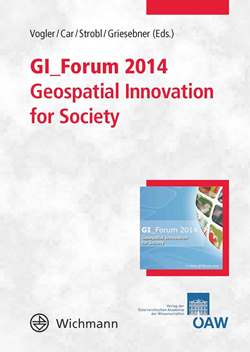 |
 |
Robert Vogler – Adrijana Car – Josef Strobl – Gerald Griesebner (Eds.)
GI_Forum 2014, Volume 2
Geospatial Innovation for Society – Conference Proceedings
Bernhard Kosar,
Melanie Tomintz
S. 207 - 216 doi: 10.1553/giscience2014s207
Verlag der Österreichischen Akademie der Wissenschaften
Abstract:
The Austrian Federal Ministry of Health aims to improve the health of all people living in Austria and to decrease social inequalities in health and other areas. This leads to careful planning and distribution of the available health care resources to meet the targets of the government. Health related data mainly exists at federal state level, which provides an interesting overview of the current health situation, but for regional planning authorities, this data is often insufficient as they can hide pockets of high and low health prevalence in certain municipalities. The research project SALUD (SpatiAL microsimUlation for Decision support), funded by the Federal Ministry for Transport, Innovation and Technology, and the Austrian Science Fund, focuses on building a spatial microsimulation model for Austria. This paper presents the use-case of a spatial analysis of estimated smokers for municipalities in the year 2011. This is done by combining survey and census data to model, in particular, the health issues of small areas (e.g. municipalities, districts) based on individuals or households where no data exists, so called missing data. Within this project, a first framework of simSALUD (www.simsalud.org/simsalud) is developed, which is a web-based spatial microsimulation application (designed as wizard) for health decision support, as there is currently no flexible and freely-available web mapping framework in the area of spatial microsimulation. The application is designed for experts as well as for non-experts to simulate their own data that can be visualized afterwards without any programming skills. The results will be valuable in supporting policy decision makers by indicating where spatial health inequalities exist, so that they can distribute their resources more efficiently and thus reduce health inequalities.
2014/06/20 07:21:15 Object Identifier:
0xc1aa5576 0x0030d5ae
Rights:https://creativecommons.org/licenses/by-nd/4.0/
GIS as a technology has come a long way, from
the early adoption of technical wizardry to the
ubiquitous, if unconscious use by the masses. The
emergence of a GISociety is on its way through
technological development, theoretical and empirical
scientific research and inclusion of technology
into education with increasing pedagogical justification.
Defining new dimensions of hard- and software,
brainware and orgware are all needed to
further enhance the GISociety with new geospatial
innovations.
This issue of the Geoinformatics Forum (www.gi-forum.org)
links into these research areas. We are pleased to present
work by researchers who actively contribute to the
rising of geospatial innovations for society in theoretical,
empirical, technical, and educational terms.
This reflects that innovative alterations can only be
created though close interaction among the domains
of science, technology and education.
Topics of the 2014 issue therefore include:
• Innovations in geospatial technologies
• Advances in GIScience
• Monitoring global change
• Geoinformation for public health
• Education with digital earth
• Spatial Citizenship education
• Geospatial learning environments
The book is aimed at researchers and practioners
in the field of geoinformation with an academic,
industrial or educational background.
Work on this publication has been co-funded by the following projects and networks
funded by the European commission:
LLP-Comenius multilateral project SPACIT
(517908-LLP-2011-1-AT-COMENIUS-CMP)
|




 Home
Home Print
Print
 References
References
 Share
Share
